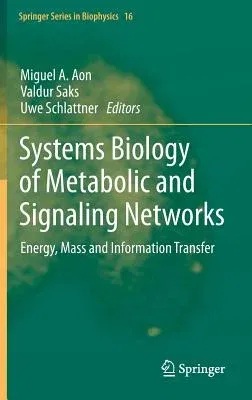Systems Biology of Metabolic and Signaling Networks: Energy, Mass and Information Transfer (2014)Hardcover - 2014, 4 November 2013

Qty
1
Turbo
Ships in 2 - 3 days
In Stock
Free Delivery
Cash on Delivery
15 Days
Free Returns
Secure Checkout

Part of Series
Springer Biophysics
Part of Series
Springer Series in Biophysics
Print Length
375 pages
Language
English
Publisher
Springer
Date Published
4 Nov 2013
ISBN-10
3642385044
ISBN-13
9783642385049
Description
Product Details
Book Edition:
2014
Book Format:
Hardcover
Country of Origin:
NL
Date Published:
4 November 2013
Dimensions:
23.37 x
16 x
2.54 cm
Genre:
Science/Technology Aspects
ISBN-10:
3642385044
ISBN-13:
9783642385049
Language:
English
Location:
Berlin, Heidelberg
Pages:
375
Publisher:
Weight:
680.39 gm